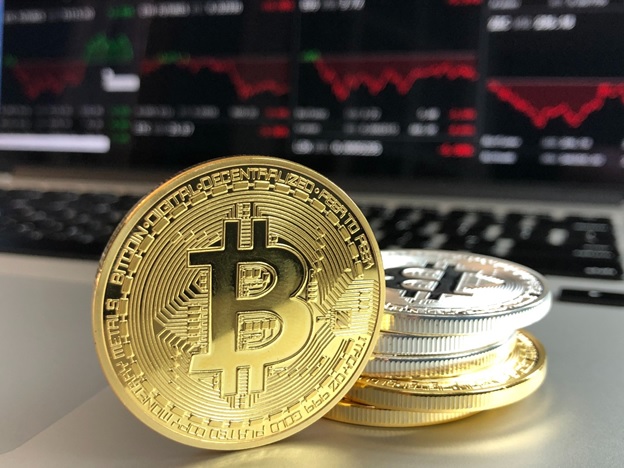 From self-driving vehicles joining the growing city taxi force to digital support booking restaurants reservations, Artificial Intelligence (AI) technology is stamping its authority continuous in our daily lives.
From self-driving vehicles joining the growing city taxi force to digital support booking restaurants reservations, Artificial Intelligence (AI) technology is stamping its authority continuous in our daily lives.
Therefore, it’s perhaps no surprise to you that these incredibly powerful bots are now being primarily used as auto trading robots in the cryptocurrency market.
Scores of people are lured to the markets by hopes of earning easy tokens through trading robots. Trading bot or robot is an automated trading program that runs on your computer and trades on your behalf in your account. They operate using various signals and indicators, such as moving indices and averages.
Selling bots online has become a massive business, but before you dive into the idea, there are things to factor in:
The concept is simple: to assist customers in generating tokens/ money in the markets, while not consuming most of their time. The underlying notion is that computers are much better at trading as opposed to human because trading is all about complex calculations of probability and mathematics.
While this may either be true or false, it’s hectic to find real performance reviews of trading softwares. Besides, anecdotal evidence intends to suggest that several traders either don’t outperform the markets or lose money. This is actually true in the crypto-space, where there are no easily accessible strategies to outwit the market, making price booms is the only feasible option.
Investing in cryptos isn’t for the faint-hearted, because there’s often the shortcoming of losing cash, especially when you lack in-depth knowledge of the market. Sometimes, even seasoned and professional traders lose their hard-earned cash on some trade since it’s really hectic to gain money every time. For instance, Wall Street Hall of Famer Warren Buffet lost approximately $23 billion during the 2008’s financial crisis.
In short, humans aren’t flawless when it comes to trading. It’s becoming notorious nowadays for individuals to invest cash into trading robots, but how effective is this method?
First, let’s dive into some of the features that fuels hostility between the two rivals.
24/7 Economy
While ordinary stock markets are only actively operational during the daytime, the crypto market operates 24/7, every day. This indicates that with a robot, you can maintain impressive trading into your working or sleeping hours.
Whereas changes in price for outdated markets can be down to fractions of a cent, fluctuations in price in crypto space can be significantly more dramatic-24 hours a day. For traders, the best cryptocurrency trading bot provides a platform to stamp authority on the market around the clock. It also secures their assets if they’re away from their place or are asleep.
While it’s true that bots can help you make good cash, it’s also true that it can make you lose money based on the trading strategies you incorporate.
Unpredictable Emotional Issues
Crypto trading can cause mixed reactions of emotions that might sometimes interrupt your progress.
For instance, fear catalysed by negative news may trigger one to emotionally trade at a loss instead of holding onto it for a lengthy period until the markets stabilize. Alternatively, making a rushed decision fueled with greed and fear of missing out may influence an individual to invest in just a single token or coin heavily.
It’s public knowledge and always advisable not to put all your eggs in a single basket regardless of how flashy the basket appears. So you perhaps shouldn’t place all your cash on Bitcoin, or whatever attractive altcoin is booming right now.
Speaking of unpredictable emotional issues, there’s no doubt that bots shut doors for absolute psychological or emotional pressure of trading. Although, individuals using bots still need to understand when to intervene and when to relax, which is always a mental skill or strength.
Time Conservation
Trading becomes monotonous with all it’s price verification and button clicking or pressing.
A trading bot can handle all those tasks with countable clicks. You can issue your bot some instructions before you take a nap and find that a few positive trades have been conducted when you wake up.
Bots react faster than human beings. When a trade signal appears (to enter or exit), there is no delay on the side of the bots. Humans, on the other hand, may question or freeze the trade. The lightning-fast period of the bots is advantageous in a fast-moving market environment.
Automated robots can access far broader markets than a human can. At any moment, a human can only effectively access a few markets, but bots can access hundreds. Once released, bots can seek opportunities in all the markets it’s designed to access; hence, taking more chances than a human can.
Paradox of Choice
There’re hundreds of cryptocurrency bots out there and finding the perfect one may be confusing. In other words, it requires the same amount of mental and emotional labour as you would when purchasing you’re next laptop or phone. Furthermore, as with everything crypto, there’s a chance that the bot you’re evaluating may be a scam.
Bots differ widely in terms of user fees or costs. Some of these bots are free, while others charge substantial subscriptions every month based on the number of features a client requires. Some such as Gimmer and Gekko are free to use, but might not provide the standard of convenience you need for your investment strategy. Others such as Cryptotrader would be more advanced but command a fee to use.
What makes a piece of software unique is the number of exchanges on which trades can be made, its usability, and the standard of analysis it provides to traders.
When done correctly, bots can be software that assists crypto traders to remain on top of the curve when it comes to market trends. They can either conduct transactions focused on the parameters of traders or developers themselves. Some bots also offer the opportunity to imitate/ emulate more established analysts and traders- and monitor their track record in full.
Heavy Maintenance
The trades are focused on analysis as opposed to emotions, and this can be advantageous for traders to influence to the odd bout of panic purchasing. All these require heavy maintenance to function correctly.
Off-the-shelf bots often operate based on set algorithms which are usually configured by developers. As a result, their performance often depends upon the designers understanding of how the crypto globe works.
The devices can sometimes be confusing for advanced traders who have their own understanding of the market, as individual pieces of software have a limited stretch for personalisation. Bots can’t purchase from a guess or suspicion as humans can. They purchase after evaluation with the technical indicators. If your selected indicators portray a purchase opportunity, it will accompany them blindly if designed to do so. Unless you connect your bot to a different professional trader, which is possible, you have no option but to learn how to conduct technical analysis yourself.
When it comes to trading, the sales of the coins can be ignited when the profit margin is attained, or a “stop-loss”-where cryptos are automatically traded. However, those tokens must elapse a stipulated value or a pre-defined figure of percentage points.
Besides, they also utilise other features such as “trailing stop-loss,” which monitor the price of a position upwards. If after a particular level of profit, the token starts to decrease, the bot will automatically sell it in profit.
The advantage of a bot is that it can maintain both a tight and rational appearance at all the present investment. At the same time, it can hunt for the latest opportunities using professional indicators. However,
greed usually hinders a trader from selling on time, a situation which a bot can avoid easily.
The bot’s potential to successfully generates profits has, however, been restricted by the notion that market movements usually depends on developments in the news. Or a single tweets from cryptocurrency influencers.
Given how bots are relying on historical performance and raw data, expecting these softwares to act upon trending events can be the stuff of a tall order.
Strategy limitation
Crypto bots can’t factor in crucial insider knowledge, breaking news, fundamental analysis, and a multitude of other factors that drive markets movement. In other words, techniques on offer could be somewhat simplistic. For instance, the bot could just be conducting arbitrage.
Arbitrage is concurrently purchasing various tokens of different exchanges to take advantage of distinct prices for the equal asset. So the bot may buy for you some ether at an affordable rate and sell it back at a higher cost at a different exchange automatically. However, the standard profit margin for this appears to be slightly lower than 1%.
While arbitrage is beneficial, one may question whether this is actually the perfect technique to maximise profits. For instance, would you be contented if you can make only a 2% return on $1000, but you have to control the investments yourself? Instead of only gaining less than $10 daily, you could be earning $20.
Will Trading Bot Outsmart Humans One Day?
There is no doubt that machine learning and AI assist trading bots in developing and evolving continuously. But there’s still an uphill task to outsmart human instinct.
It’s doubtful if a bot will ever be able to predict a catastrophic danger to the crypto space or weigh the implication of emerging technologies. Furthermore, if everybody were to utilise the same measures set up by a trading bot, no one would have all vital edge which leads to profitable scenarios.
In fact, some custom-developed bots are being built with the potential of searching social media for news utilising keywords. Although this could assist flag up a significant development to an investor, it would be risky for the bot to function on its own. The situation can worsen when the mentioned post turns out to be “fake news”- or even over-optimistic contention from an emerging startup.
As a result, specific bots are attempting to attain the best of both platforms. Services such as Cryptohopper allow investors to trade automatically utilising professional indicators, the primary type of technical analysis.
This bot also offers access to third-party technical analysts, who spread out alerts concerning promising investments that the bot can operate upon automatically on behalf of the users. This opens more room for the human touch that’s needed for critical analysis. It could be debated that such a hybrid can offer a much-required edge in terms of speedy transactions.
The Bottom Line
Because of all that can be gained by either using trading bots or humans, the cryptocurrency trading market has continued to thrive and grow. However, doing your homework and due diligence can be a crucial indicator of whether particular trade will fail or succeed.
Therefore, it’s crucial recalling that past performance isn’t often a precise indication of what will occur in the future. It’s always essential to have an open mind concerning the cryptos you invest in and monitor the latest activities in the market.
Lastly, it’s imperative to follow the trend on the performance reports of analysts before you take the initiative to trade a particular token.
Genuine traders will often issue well-researched details of their previous results, including how they’re performing currently. Some individual websites are highlighting their strategies and features regarding the technology that underpins their trading assessments.
VerolianAuthor Bio Verolian Opiyo is a former teacher of English turned content strategist. He specialises in writing about FinTech and Next-generation technology.
Verolian Opiyo is a former teacher of English turned content strategist. He specialises in writing about FinTech and Next-generation technology.
 My interest in Blockchain technology and crypto started when I was an undergrad. It has since then transformed into something much bigger for me. I believe that Blockchain is undoubtedly the future of technology as we know it, and have been trying to share as much knowledge as I humanly can with people.
My interest in Blockchain technology and crypto started when I was an undergrad. It has since then transformed into something much bigger for me. I believe that Blockchain is undoubtedly the future of technology as we know it, and have been trying to share as much knowledge as I humanly can with people.


 The word "
The word "
 Indeed everyone requires some kind of information regarding the sites they will invest in. Therefore,
Indeed everyone requires some kind of information regarding the sites they will invest in. Therefore, 
 The term "forex scam" refers to any scheme that is designed to defraud traders by using deceit, such as persuading investors that trading on the currency market would result in significant profits. In a nutshell, the market for foreign exchange is a zero-sum game, meaning that if one individual is successful, another is unsuccessful.
The term "forex scam" refers to any scheme that is designed to defraud traders by using deceit, such as persuading investors that trading on the currency market would result in significant profits. In a nutshell, the market for foreign exchange is a zero-sum game, meaning that if one individual is successful, another is unsuccessful.
 Foreign exchange trading is a legal way to supplement your income. However, as its popularity has grown, so has the number of forex scammers.
Foreign exchange trading is a legal way to supplement your income. However, as its popularity has grown, so has the number of forex scammers.
 XT.com is proud to announce its upcoming CARES (1BCARES) listing on its platform. This collaboration will enable both networks to expand their reach in helping various humanitarian and socio-economic causes around the world. The token will be available in the exchange’s Mainzone (MEMEs) section.
XT.com is proud to announce its upcoming CARES (1BCARES) listing on its platform. This collaboration will enable both networks to expand their reach in helping various humanitarian and socio-economic causes around the world. The token will be available in the exchange’s Mainzone (MEMEs) section.
 Choise.com (CHO), the world’s first MetaFi (CeFi and DeFi) ecosystem, has announced the launch of the US$5,000,000 Celebration Pool.
Choise.com (CHO), the world’s first MetaFi (CeFi and DeFi) ecosystem, has announced the launch of the US$5,000,000 Celebration Pool.
 From self-driving vehicles joining the growing city taxi force to digital support booking restaurants reservations, Artificial Intelligence (AI) technology is stamping its authority continuous in our daily lives.
From self-driving vehicles joining the growing city taxi force to digital support booking restaurants reservations, Artificial Intelligence (AI) technology is stamping its authority continuous in our daily lives. Verolian Opiyo
Verolian Opiyo
 The internet changed the way traditional investment has been done and broadened access to individuals to explore how to trade and invest directly on newly surfaced online platforms. More and more investors are growing more comfortable with foregoing a third party or broker and are taking investing into their own hands. According to Investopedia
The internet changed the way traditional investment has been done and broadened access to individuals to explore how to trade and invest directly on newly surfaced online platforms. More and more investors are growing more comfortable with foregoing a third party or broker and are taking investing into their own hands. According to Investopedia


 Are you already familiar with cryptocurrencies, trading, maybe you are even registered on several exchanges? Great. Now it’s time to learn all the intricacies of cryptocurrency trading and answer the question: “How to trade cryptocurrency?” In this article, we`ll tell you about such advanced orders as Stop Loss, Take Profit, and Trailing Stop. You will master the theory (yes, boring terms will be here too), learn about their advantages and disadvantages, and also be able to decide what to add to your trading arsenal.
Are you already familiar with cryptocurrencies, trading, maybe you are even registered on several exchanges? Great. Now it’s time to learn all the intricacies of cryptocurrency trading and answer the question: “How to trade cryptocurrency?” In this article, we`ll tell you about such advanced orders as Stop Loss, Take Profit, and Trailing Stop. You will master the theory (yes, boring terms will be here too), learn about their advantages and disadvantages, and also be able to decide what to add to your trading arsenal. Gleb MyrkoCrypto Marketer & CEO
Gleb MyrkoCrypto Marketer & CEO 





 I then searched and scoured the web for anyone providing Cryptocurrency arbitraging classes and came across one platform, Jubilee Ace, which was not only involved in crypto arbitrage but also in other various arbitraging also. I contacted the Marketing Team and went ahead to see for myself.
I then searched and scoured the web for anyone providing Cryptocurrency arbitraging classes and came across one platform, Jubilee Ace, which was not only involved in crypto arbitrage but also in other various arbitraging also. I contacted the Marketing Team and went ahead to see for myself.
 2. Make an Informed Decision
2. Make an Informed Decision  3. Platform or Tokens
3. Platform or Tokens